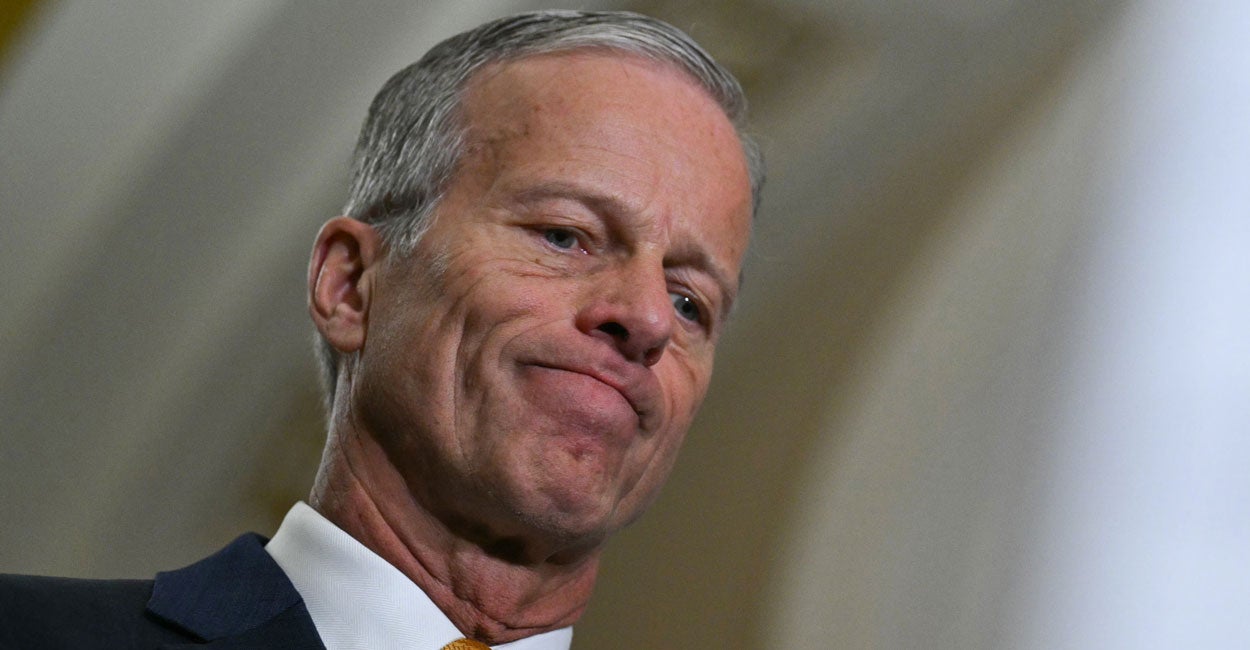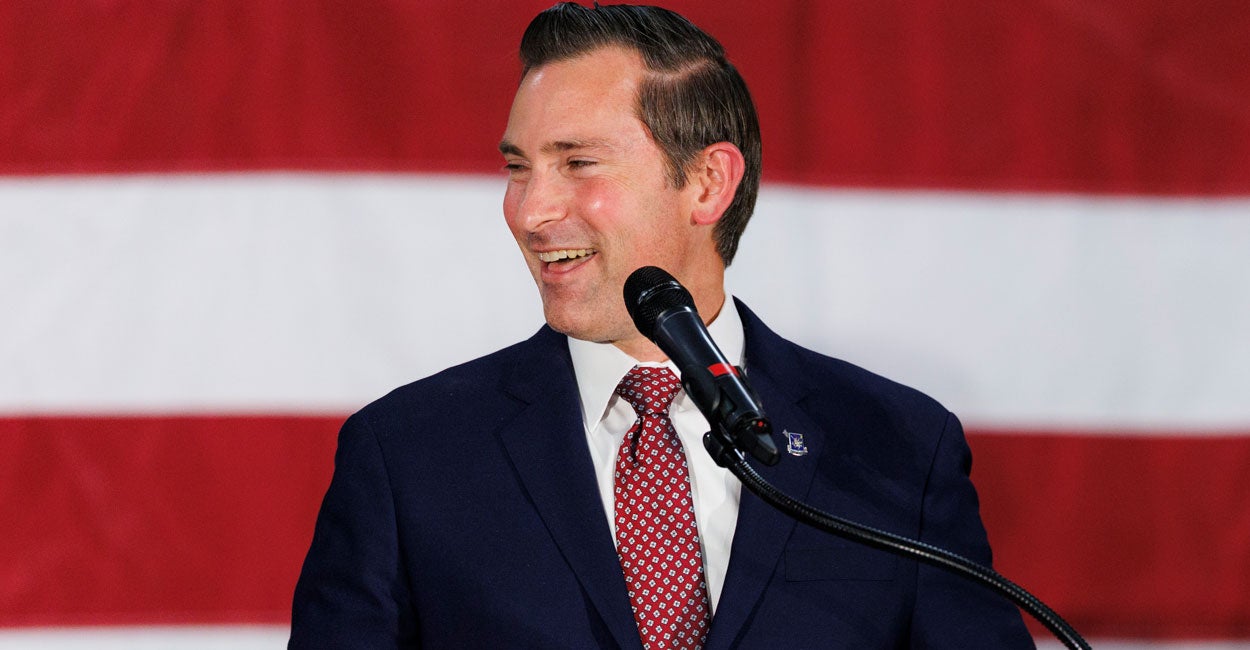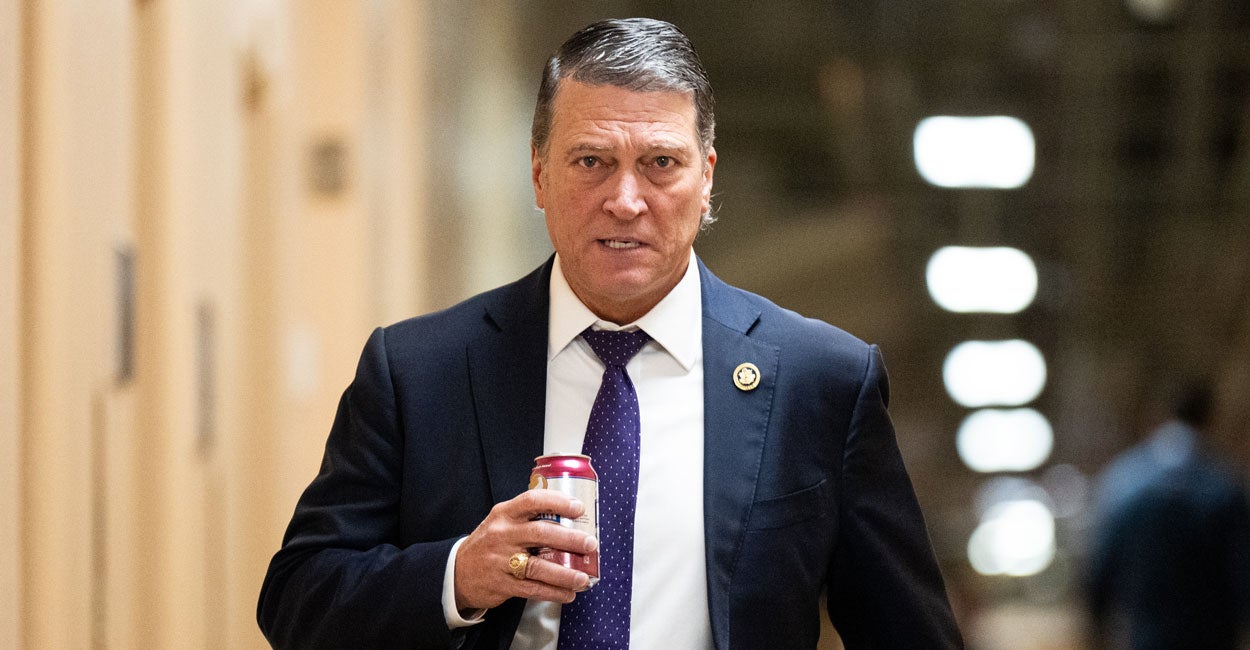Provisions of ‘Big, Beautiful Bill’ Get Scrubbing in Senate in Parliamentarian’s ‘Byrd’ Bath

A number of provisions of the House‘s Big, Beautiful Bill Act—the main legislative vehicle for fulfilling President Donald Trump’s campaign promises—have been thrown out in recent days, complicating Republicans’ efforts to pass the 10-year fiscal framework before Independence Day on July 4.
Senate Parliamentarian Elizabeth MacDonough—essentially the Senate referee—decides on whether or not provisions in the budget reconciliation process follow Senate rules.
In such cases, she is invoking the “Byrd rule,” which is meant to restrict the process to budgetary policy only. The rule is named for then-Sen. Robert Byrd, D-W.Va., who was the rule’s main sponsor when it was adopted in 1985.
There are a few reasons a parliamentarian might to toss a provision under the Byrd rule: If it does not produce a change in spending or savings that is more than “merely incidental”; if it is not in compliance with budgetary instructions; if it increases deficits beyond the 10-year window; if it is outside a committee’s jurisdiction; or if it affects Social Security.
In order to overcome such overruling, Republicans would have to get 60 votes to overturn each ruling, per Senate custom. That’s very unlikely given the current partisan divide in the Senate, where Republicans hold 53 of the 100 seats.
Here‘s how the bill has been changed in recent days.
Food Stamps
MacDonough has thrown out some of the reforms to the Supplemental Nutrition Assistance Program (SNAP), which provides food stamps to millions of Americans.
Specifically, the parliamentarian has struck provisions that would have barred noncitizens from accessing food stamps and would have forced states to share a larger amount of the cost of the program if they have a higher payment error rate.
Those amount to a gutting of the House and Senate agriculture committees’ work on the bill and will do damage to the overall spending reductions of the bill.
State Border Enforcement
Another provision on the chopping block was “state and local assistance”—authorizing states to assist the federal government in carrying out immigration enforcement.
“This subsection authorizes states to conduct border security and immigration enforcement, which are federal functions,” write Senate Budget Committee Democrats in their outline of the Byrd rule casualties.
Beyond precluding the federal government from saving money on these operations, the parliamentarian’s ruling also deals a blow to the bill’s work to help fulfill Trump’s promises on border security.
Selling Off Postal Service EVs
Slashed from the bill is a provision that “mandates the sale of all the United States Postal Service’s electric vehicles and infrastructure to support its electric vehicles.”
While perhaps not a massive setback for congressional Republicans, it means that this element of former President Joe Biden’s presidency will live on.
Is a Parliamentarian’s Ruling Final?
The Senate parliamentarian’s rulings are something of a setback to Republicans, but they are not necessarily final. A simple option is to amend and resubmit the provision so that the parliamentarian no longer considers it in violation.
The Senate can also motion to waive the parliamentarian’s ruling, which requires 60 votes—an unlikely outcome given Republicans’ 53-seat majority and Democrats’ unanimous opposition to the bill.
There is also the option of having the presiding officer of the Senate—Vice President JD Vance—choose to ignore the parliamentarian’s rulings. This would send an earthquake through Washington and shatter precedent.
For context, back in 2021, Rep. Ro Khanna, D-Calif., urged Vice President Kamala Harris to overrule MacDonough striking a $15 minimum wage provision in the American Rescue Act, a reconciliation package.
“I’m sorry—an unelected parliamentarian does not get to deprive 32 million Americans the raise they deserve,” Khanna said in 2021. “This is an advisory, not a ruling. VP Harris needs to disregard and rule a $15 minimum wage in order.” Harris ultimately did not pursue this.
There is also the option of removing a parliamentarian, which then-Senate Majority Leader Trent Lott, R-Miss., did with then-Parliamentarian Robert Dove in 2001.
These latter two options are extremely unlikely, but they are in the Republicans’ toolbox if they consider MacDonough’s rulings do considerable damage to the main legislative vehicle for enacting Trump’s agenda.
The post Provisions of ‘Big, Beautiful Bill’ Get Scrubbing in Senate in Parliamentarian’s ‘Byrd’ Bath appeared first on The Daily Signal.
Originally Published at Daily Wire, Daily Signal, or The Blaze
What's Your Reaction?
 Like
0
Like
0
 Dislike
0
Dislike
0
 Love
0
Love
0
 Funny
0
Funny
0
 Angry
0
Angry
0
 Sad
0
Sad
0
 Wow
0
Wow
0











































































